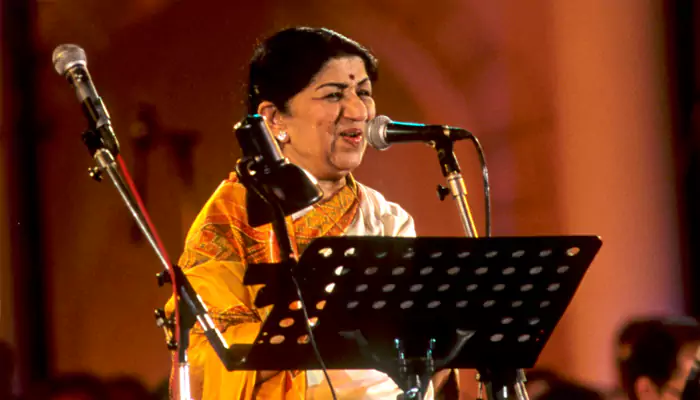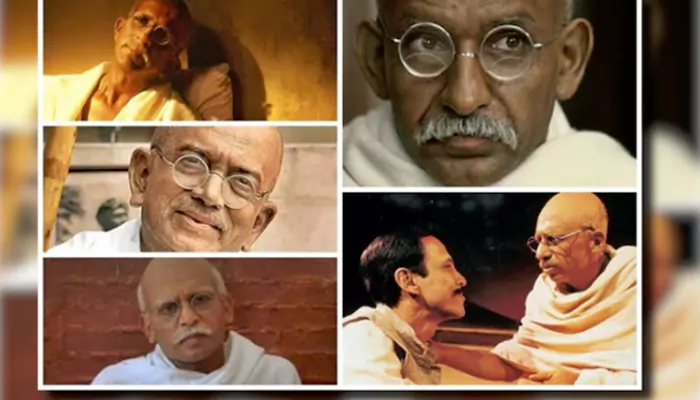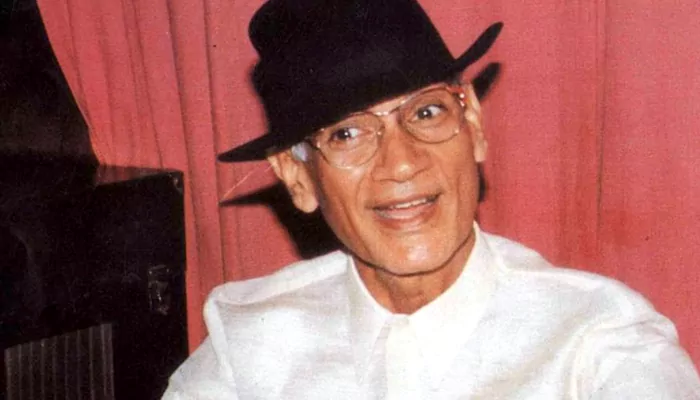Lata Mangeshkar’s Birth Anniversary: How One Woman’s Voice Became the Soul of Bollywood
- Sayan Guha
- 4 months ago
- 4 minutes read

On her 96th birth anniversary, India recalls the nightingale whose songs became the country’s collective heartbeat
Close your eyes and think of a Hindi film song from the last century. Chances are, the voice you hear belongs to Lata Mangeshkar. Sweet yet commanding, delicate yet resolute, hers was a voice that threaded itself through India’s story — floating from transistor radios in dusty lanes, echoing across wedding halls, wafting from loudspeakers at Durga Puja pandals, and spilling out of cinema halls into the country’s restless streets.
For millions, she wasn’t just a singer. She was a companion. The roadside vendor in Delhi, the soldier keeping watch in Ladakh, the truck driver speeding through a lonely highway — all carried her songs like talismans of comfort. Lata’s voice, much like Gandhi’s khadi or Tagore’s flowing beard, seeped into India’s collective memory, becoming part of its cultural DNA.

A quiet force in a noisy industry
Behind that celestial voice stood a surprisingly ordinary woman: camera-shy, understated, and deeply private. Yet, within the film industry, her influence was anything but modest. Music directors, producers, and record executives — some of the most powerful men in Indian entertainment — bent to her will. A single shake of her head could unsettle a composer; one illness could derail an entire production schedule. As one insider famously remarked, “Lata catches a cold, and the whole industry sneezes.”

Credit: The Hindu
Such was her authority that, by her early fifties, she had already sung more songs than any other singer in the world. Guinness may have struggled to tally the exact number, but the figures speak for themselves: an average of 300 songs a year in her early career, then as many as 500 annually through the 1960s and 70s.
Even when international tours kept her away from recording studios, she still managed to deliver around 150 songs a year. The result? A staggering body of work that crossed 14,000 tracks — from film anthems to devotional hymns and private recordings.

Credit: telegraphindia
More than records, a shared emotion
But numbers alone cannot explain her legacy. What set Lata apart was her ability to imbue words with emotion. She lent her voice to heroines of every generation, from Nargis to Madhuri Dixit, yet she never lost her freshness. The tremor in “Lag Jaa Gale,” the innocence in “Aayega Aanewala,” the patriotic fervour in “Ae Mere Watan Ke Logon” — each revealed a different facet of her artistry. Through her, Bollywood found not just a sound, but a soul.
Her songs were not simply consumed; they were lived. Lovers whispered them, mothers hummed them, and festivals celebrated them. In a country as diverse and divided as India, her music was one of the rare threads binding people together.

The crown of honours
Lata’s achievements were recognised worldwide. She was awarded the Dadasaheb Phalke Award in 1989, the Bharat Ratna—India’s highest civilian honour—in 2001, and France’s National Order of the Legion of Honour in 2009. She received the National Film Awards and multiple Filmfare trophies (before graciously stepping aside to allow younger singers a chance), and even performed at London’s Royal Albert Hall in 1974, becoming the first Indian playback singer to do so.
For a time, she held the Guinness World Record as the most recorded artist in history. Titles like “Queen of Melody” and “Voice of the Millennium” sought to capture her greatness, but perhaps none were necessary. To generations of Indians, she was simply Lata Didi.
Remembering the iconic nightingale of India Lata Mangeshkar ji on her Birthday! 🙏🙏 #LataMangeshkar pic.twitter.com/FXbIdOvAHS
— Amjad Ali Khan (@AAKSarod) September 28, 2024
Eternal echoes
On her 96th birth anniversary, remembering Lata Mangeshkar is more than an act of nostalgia. It is an acknowledgement that a single human voice can shape a nation’s emotional landscape. She may have once confessed she did not wish to return as herself in another life, but for millions, she is irreplaceable.












